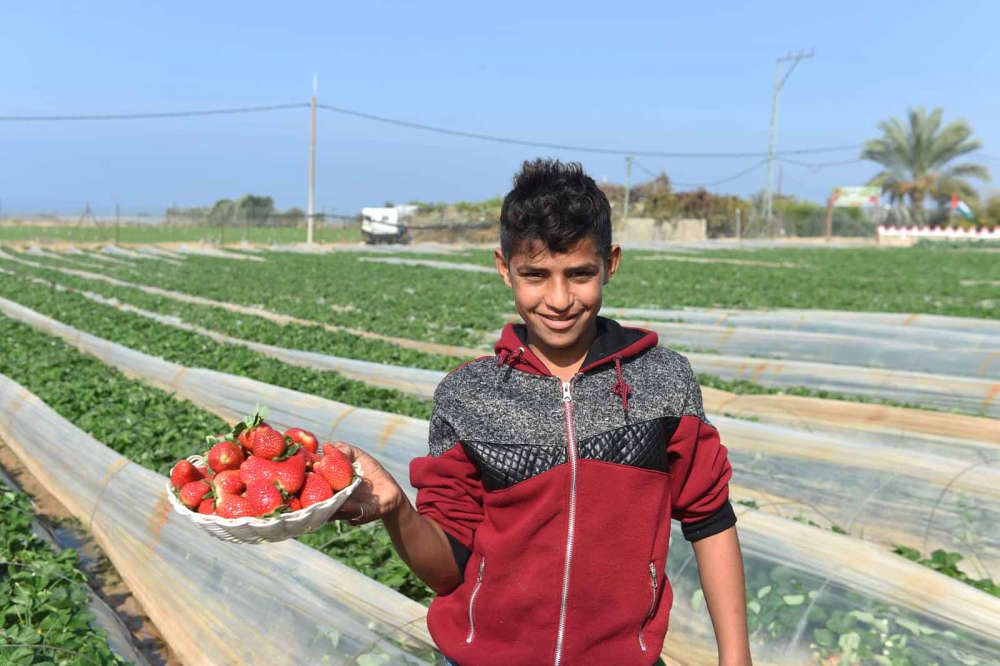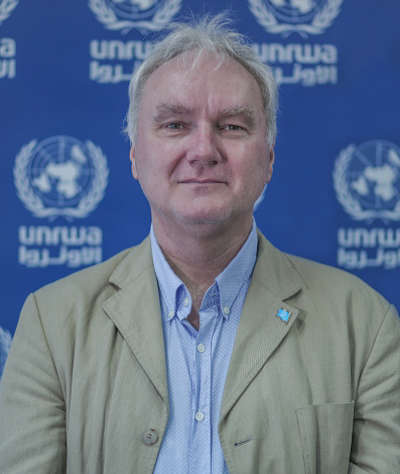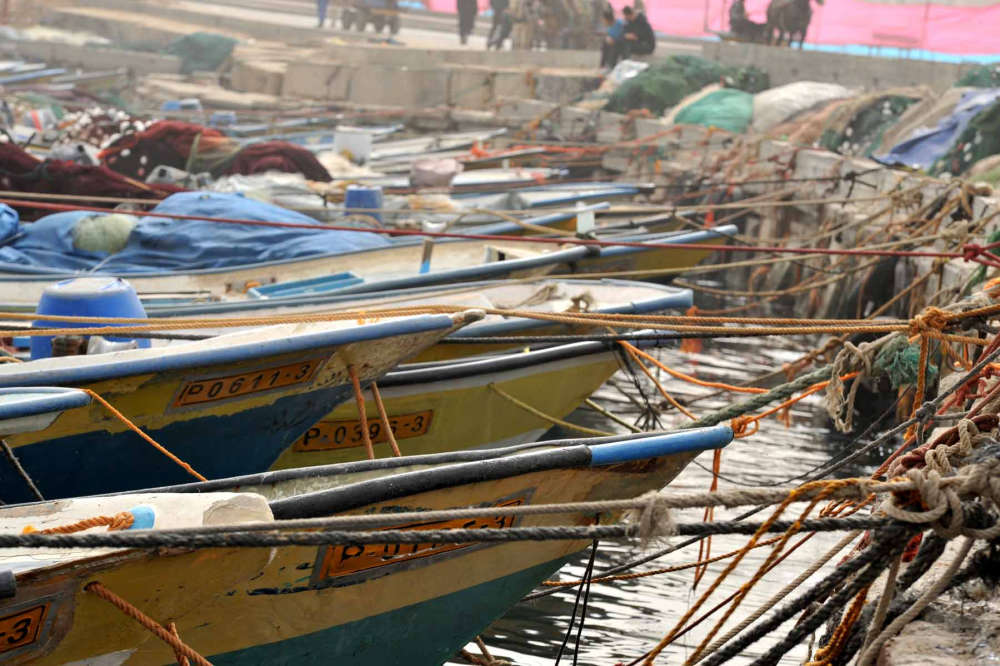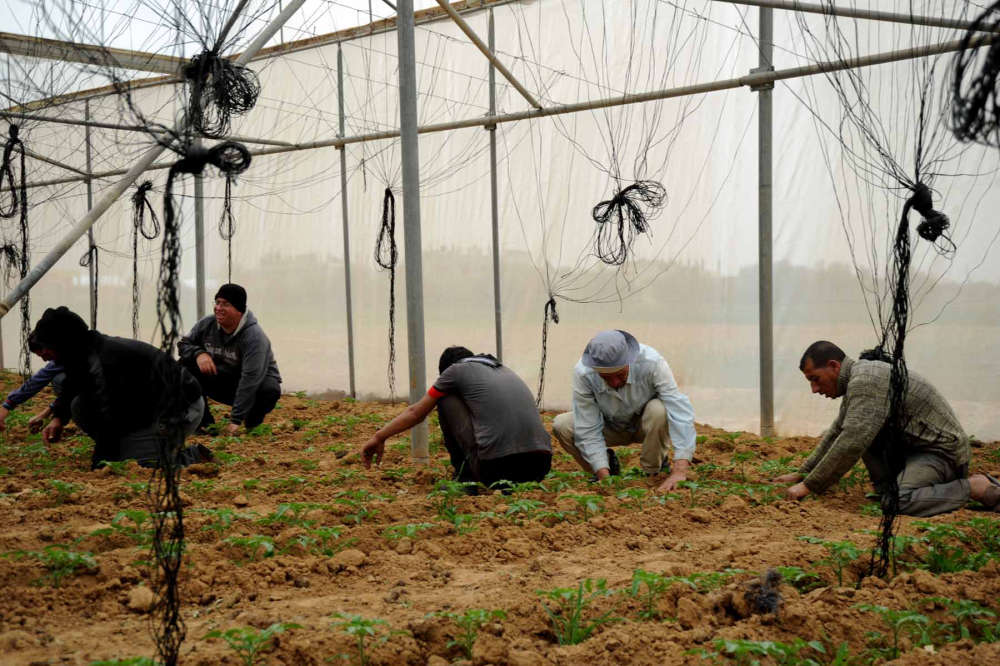When I was asked to provide a perspective on sustainable development in Gaza, the first thought that came to mind was what a senior Palestinian adviser shared with me just after my arrival in Gaza in October 2017. “We all know about the famous development advice,” he said. “Give some fish to marginalized people, and you feed them for a day. Teach them how to fish, and you feed them for a lifetime. In Gaza, we know how to fish, we just need to be given an opportunity to do so!”
Over the past months, I have met countless well-trained and highly educated Palestinians in Gaza with an impressive entrepreneurial mindset and who – against all odds – remain motivated and determined to make the best out of their lives. Achieving sustainable development must therefore be first and foremost about opening up the space and opportunities for Gaza’s people to realize their enormous development potential. As another colleague put it, “If we are given a chance, we will grasp it, build on it, and then we’ll no longer need anyone’s help or aid!”
Gaza’s demographics are dominated by its rapid growth (4.5 percent fertility rate during 2011–2013) and its very young population, which requires an economy able to absorb an increasing labor force. However, largely due to the strict land, air, and sea blockade imposed on Gaza since 2007, its subsequent separation from its export markets and repeated rounds of hostilities that took a heavy toll on Gaza’s civilian population, the Gaza Strip has been in socio-economic decline for more than a decade. Its GDP per capita stood at a mere US$ 1,742 in 2017, and unemployment rates have exceeded 30 percent since 2007 and reached a staggering 49.1 percent in the first quarter of 2018.
While the downward trend continues, and the crippled economy approaches total collapse, it is not too late to turn this around. Prior to the blockade, more than 54 percent of employment in Gaza was private-sector driven. Manufacturers in Gaza imported 95 percent of their inputs. About 76 percent of their furniture products, 90 percent of garments, and 20 percent of their food products used to be exported to Israel, and some to the West Bank. Since the tightened blockade in June 2007, the majority of Gaza’s industrial operations have been suspended due to restrictions on imports and an almost complete ban on exports of domestic manufacturing and agriculture products and other services.
It appears that the private sector still holds the key to economic development, and it seems that it would be relatively straightforward and easy to revitalize it. This is not in the first instance about costly mega projects that will take time to be implemented. While such projects will be important longer-term especially in the energy and water sectors, supporting existing small- and medium-scale businesses to recover would likely be a quicker and more effective path to revitalizing the economy in the short term. I recently had the opportunity to visit the Palestine Industrial Estate Development and Management Company (PIEDCO) in Karni. PIEDCO provides critical facilities to more than 30 companies and offers an example of the private-sector capacity that still exists and that could be easily scaled-up. We witnessed the operations of one of the food-processing companies that had been rebuilt twice in the past six years. It currently supplies the local market in Gaza with its tasty snacks, but if this and similar Gaza-based businesses were allowed to not just import most of their raw materials but also to export their intermediate and final products, they would contribute quickly and sustainably to economic revival. Similar comments can be made about the agriculture and fishing sectors. In Gaza, I have been lucky to taste some of the most delicious strawberries and fish that I have eaten anywhere in the world. Widening the fishing zone and allowing farmers to export their produce would contribute quickly to poverty reduction, sustainable development, and job creation.
So how does UNRWA fit into this picture?
UNRWA has responsibility for providing quasi government-like services to more than 1.3 million Palestine refugees, or more than 70 percent of the population, who live in the coastal enclave. As in many other parts of the world, one important driver for achieving the Sustainable Development Goals (SDGs) agenda of “leaving no one behind” is investment in education. Quality and inclusive education (SDG 4) can transform children’s lives and be a foundation for a strong, peaceful, and productive society. Just recently, UNRWA celebrated the end of the school year in its 275 Gaza schools where 269,548 UNRWA students passed their exams, acquiring step-by-step the knowledge and skills that are needed in order to realize their full potential and to contribute positively to the development of their community.
A second major investment by UNRWA into laying the foundation for sustainable development is the provision of primary health care. Some 1,000 staff provide essential health services at 22 health centers throughout Gaza. Not only is “Good Health and Well Being” (SDG 3) key to lasting and successful development of any individual or society, the provision of UNRWA health services within the current Gaza context is life-preserving and indispensable.
Furthermore, UNRWA – to the best of its abilities – is making a contribution towards “Decent Work and Economic Growth” (SDG 8) through the direct and indirect job opportunities created through its operations and projects.
One of the agency’s initiatives to improve livelihoods and economic development is its so-called Job Creation Programme. Through this program, UNRWA injects significant amounts of cash into the local economy through the provision of temporary (usually three-month) employment opportunities. These opportunities are provided in key sectors (industrial sectors, agriculture, fishing, and higher education) and help to mitigate the effects of skyrocketing unemployment, as well as allow some private-sector companies to maintain basic levels of operation. Another component of the Job Creation Programme aims to improve the employability of graduates by providing them with internship training and work opportunities that will equip them with skills and competencies needed to compete more successfully in the local labor market.
No Palestinian refugee enjoys being a refugee or being dependent on aid. The ultimate hope for Palestinian refugees is that a just solution be reached for their 70-year-old plight. Meanwhile everything possible must be done to keep horizons open and to enable opportunities for a life of greater dignity.
In addition, UNRWA’s vocational training as well as microcredit programs make a contribution to achieving SDG 8 for the people in Gaza. Some 1,500 students graduate annually from UNRWA’s two vocational training centers with vocational and semi-professional skills and competencies that over the years have allowed many of them to find meaningful employment or to start their own businesses. And there are countless stories among the more than 112,000 Palestinian refugees that since the inception of the program in 1991 have successfully built small-scale and medium-sized businesses after receiving a loan and business-management training from UNRWA.
One other way forward to promote commercially sustainable economic growth and development in Gaza in light of severe movement restrictions and high unemployment among university graduates is developing the ICT sector. UNRWA is proud to have played a role in innovative initiatives such as GGateway – a social nonprofit enterprise that offers temporary employment and training opportunities for recent IT graduates and connects them with local and international clients – which has contributed to laying the foundation for an outsourcing and consultancy hub in Gaza.

In conclusion, while the biggest obstacle to sustainable development in Gaza is the blockade and the absence of a political horizon for Palestinians, including Palestinian refugees, it would be amiss not to point to the importance of good governance that has to be provided by the Palestinians’ own political leadership. After years of failing government services offered by Hamas and the damaging rift between the authorities in Ramallah and Gaza, effective and quality public services provided by a unity government are critical in preventing further collapse and preserving the potential to revitalize the economy. This has to include basic services such as a more stable and sufficient provision of electricity and clean water as well as a fair, transparent, and effective taxation and business regulation system that in the first instance provides the necessary public infrastructure and benefits the most marginalized in Gaza’s society.
Article photos by Shareef Sarhan.




